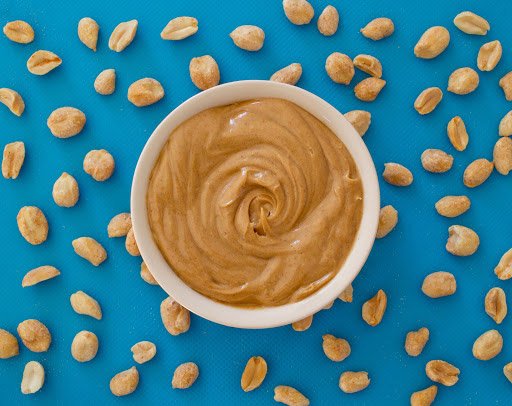Resources for Parents
Explore our nutritious recipes, expert-driven articles and evidence-based resources to help parents make informed decisions about their family’s health.
Most Popular
Do you think your baby’s rash may be caused by a food allergy? Let’s look at how to identify and treat a food allergy rash.
Benadryl can help with your child's mild allergy symptoms, as long as you give the right dose. Learn how to identify and give the safe dose of Benadryl.
Wondering if your baby needs hypoallergenic formula? Keep reading to learn more about switching formulas and keeping your baby healthy.
Learn what finned fish allergy is, symptoms of fish allergy, how finned fish allergy is different from shellfish allergy, and more.
What if your breastfed baby won’t take a bottle? Don’t be discouraged. Learn 10 tips to help you overcome bottle refusal.
Learn why the "open gut" theory is misleading, and why all babies should be introduced to allergy-causing foods starting as early as 4 months of age.
Wondering if your baby needs hypoallergenic formula? Keep reading to learn more about switching formulas and keeping your baby healthy.
Learn how to tell the difference between baby gagging and choking, and how to introduce solids safely.
What if your breastfed baby won’t take a bottle? Don’t be discouraged. Learn 10 tips to help you overcome bottle refusal.
AAAAI and NIAID guidelines recommend feeding baby peanut to help prevent peanut allergies. Find out when can you safely feed peanut butter.
Learn why the "open gut" theory is misleading, and why all babies should be introduced to allergy-causing foods starting as early as 4 months of age.
Learn about how much formula you should be giving your baby and how often you should be feeding your baby for their first few months.
Many parents wonder if diet during pregnancy can increase or decrease their baby’s risk of developing a food allergy, and online information can be conflicting. Let's delve into what the current research says and what recommendations are available.
This blog will discuss findings from a recent in-depth analysis of all the clinical trials conducted on early allergen introduction.
In recent years, there has been a noticeable surge in the prevalence of food allergies, highlighting a growing concern among individuals and healthcare professionals. Learn more about several factors that are contributing to this significant public health issue.
Introducing allergenic foods to babies early in life has gained significant attention as a strategy to reduce the risk of food allergies and promote healthier outcomes. Learn more about the evidence-based recommendations from international medical associations to direct the early introduction of allergens.
Explore six reasons why parents should consider introducing allergens early and often to their babies.
Examine how infant feeding practices and food allergy rates have transformed over time, from the 1950s until present day.
Living with food allergies involves a constant, vigilant dance with the everyday foods we encounter. While some allergens are easily identifiable, others lurk in unexpected places. This blog unveils the hidden challenges and offers insights to empower individuals and their communities in this collective journey of allergen awareness.
Navigating the landscape of food allergies can be challenging, and misinformation often adds an extra layer of complexity. In this blog, we aim to debunk ten common myths surrounding food allergies, shedding light on the realities that individuals and families face.
Raising a child with food allergies comes with its unique set of challenges, but empowering them to advocate for themselves is a crucial aspect of their journey towards independence. Here's a guide on how to foster self-advocacy at different stages of your child's development.
When hosting guests with food allergies, a thoughtful and informed approach is key to ensuring a safe and enjoyable dining experience for everyone involved. Read this blog to learn tips on how to prepare a welcoming meal for those with food allergies.
Food Protein-Induced Enterocolitis Syndrome (FPIES) and Milk and Soy Protein Intolerance (MSPI) present unique challenges for families, especially when affecting infants and young children. Navigating the challenges of FPIES and MSPI requires understanding the unique characteristics of each condition.
Navigating the realm of food allergies can be challenging, and individuals often seek answers through various tests. One such test, the IgG antibody food panel, has gained popularity. However, it's crucial to understand that the IgG antibody test doesn't hold the key to unraveling food allergies or intolerances.
Navigating the landscape of allergy-free schools is a complex endeavor, with passionate voices on both sides of the debate.
Food allergies cost the average American family more than $4,000 per year. Is there a solution for this $25 billion epidemic?
Babies aren’t born with food allergies Here’s what parents need to know about family history and food allergies, and about reducing their baby’s risk.
Learn how recent landmark clinical studies show that introducing peanut to babies early and often is key to preventing peanut allergies.
Based on a new study, food challenges may be a safe way to introduce peanut to babies with large peanut skin prick test wheals. Learn more here.
New research shows that store-bought baby food may increase your baby's food allergy risk, here's what parents need to know about this recent study.
Some medical organizations' guidelines require allergy screening for babies with severe eczema. Here's everything parents need to know.
What is the difference between a food allergic reaction and an eczema flare-up? Learn what triggers each one and what each one looks like.
Babies with eczema are at a higher risk of developing food allergies. Learn how you can build their immunity to potentially harmful foods.
Although food allergies are on the rise, they are now preventable in many cases. Here's how parents can help.
































